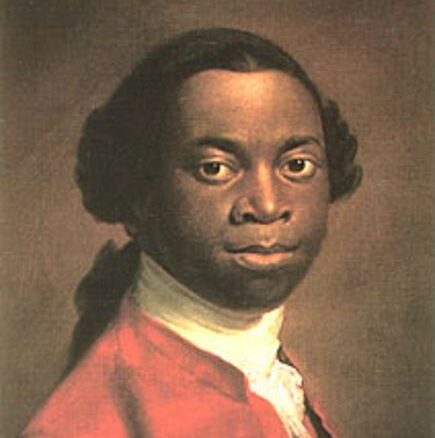
In a remarkable journey that spans the breadth of human experience, Olaudah Equiano’s life story stands as a beacon of resilience and hope. Born amidst the cultural richness of the Igbo people in what is now Nigeria, Equiano’s early life was a tapestry of traditional African customs and values. This world of familiarity and peace was shattered irrevocably when he was forcibly taken from his homeland, plunging him into the cruel world of the transatlantic slave trade.
Equiano’s narrative, a tale of endurance and transformation, begins with his harrowing experience of being kidnapped and sold into slavery. The voyage across the Atlantic, known as the Middle Passage, was a crucible that tested and forged his spirit. Despite the oppressive and inhumane conditions, Equiano’s unbreakable will to survive began to emerge.
Upon arrival in the British colonies of North America, Equiano faced the harsh realities of life on a Virginia plantation. It was here, in these unforgiving circumstances, that he experienced both the brutality of enslavement and the power of knowledge. Taught to read and write by the family that owned him, Equiano embarked on a journey of intellectual awakening that would fuel his later pursuits.
The turning point in Equiano’s life came with his sale to a British naval officer. This period marked the beginning of his global travels and exposure to different cultures and languages. It was through these experiences that Equiano developed a nuanced understanding of the world, laying the groundwork for his future role as an abolitionist.
In 1766, Equiano achieved a monumental personal milestone by purchasing his freedom. Settling in London, he embraced his new life with vigour, becoming a merchant and trader. Yet, his most significant contribution was still to come. In 1789, Equiano published his autobiography, “The Interesting Narrative of the Life of Olaudah Equiano,” a work that would become a cornerstone in the fight against slavery.
Equiano’s autobiography transcended the personal. It was a scathing critique of the slave trade and a poignant account of the human cost of slavery. His vivid descriptions brought to light the realities of the Middle Passage and the inhumanity of the plantation system. Equiano’s narrative was not just his story but also a voice for the voiceless, giving a platform to the millions who suffered in silence.
As a prominent figure in the abolitionist movement in Britain, Equiano used his eloquence and experiences to challenge the status quo. His writings and speeches were instrumental in changing public opinion on slavery. He argued passionately against the moral and human injustices of the slave trade, appealing to the conscience of the British public and policymakers.
Equiano’s activism extended beyond his writings. He was actively involved in the abolitionist circles, engaging with key figures and using his personal story to illustrate the broader inhumanity of slavery. His efforts were pivotal in the eventual passing of the Abolition of the Slave Trade Act in 1807, a landmark achievement in the long struggle against the slave trade.
Reflecting on Equiano’s life, one is struck by his remarkable transformation from a young boy in Africa to a leading voice in the abolitionist movement in Britain. His journey was marked by immense challenges, but his spirit remained unbroken. His story is a testament to the power of resilience, education, and the human spirit.
Equiano’s death in 1797 did not mark the end of his influence. His narrative has continued to inspire generations, serving as a powerful educational tool and a source of inspiration. It remains a critical document in understanding the history of slavery and its enduring impact on society.
During Black History Month, as we commemorate Equiano’s life and legacy, we also remember the countless others who endured the brutality of slavery. His story serves as a reminder of past atrocities and a rallying call to continue the fight against all forms of modern slavery and injustice.
In conclusion, Olaudah Equiano’s life, a symbol of courage, resilience, and the unyielding pursuit of freedom, resonates across centuries. His narrative transcends time, offering lessons on the power of the human spirit to overcome adversity and effect change. In celebrating Equiano, we not only honour his memory but also reaffirm our commitment to equality, justice, and the dignity of all humans.
